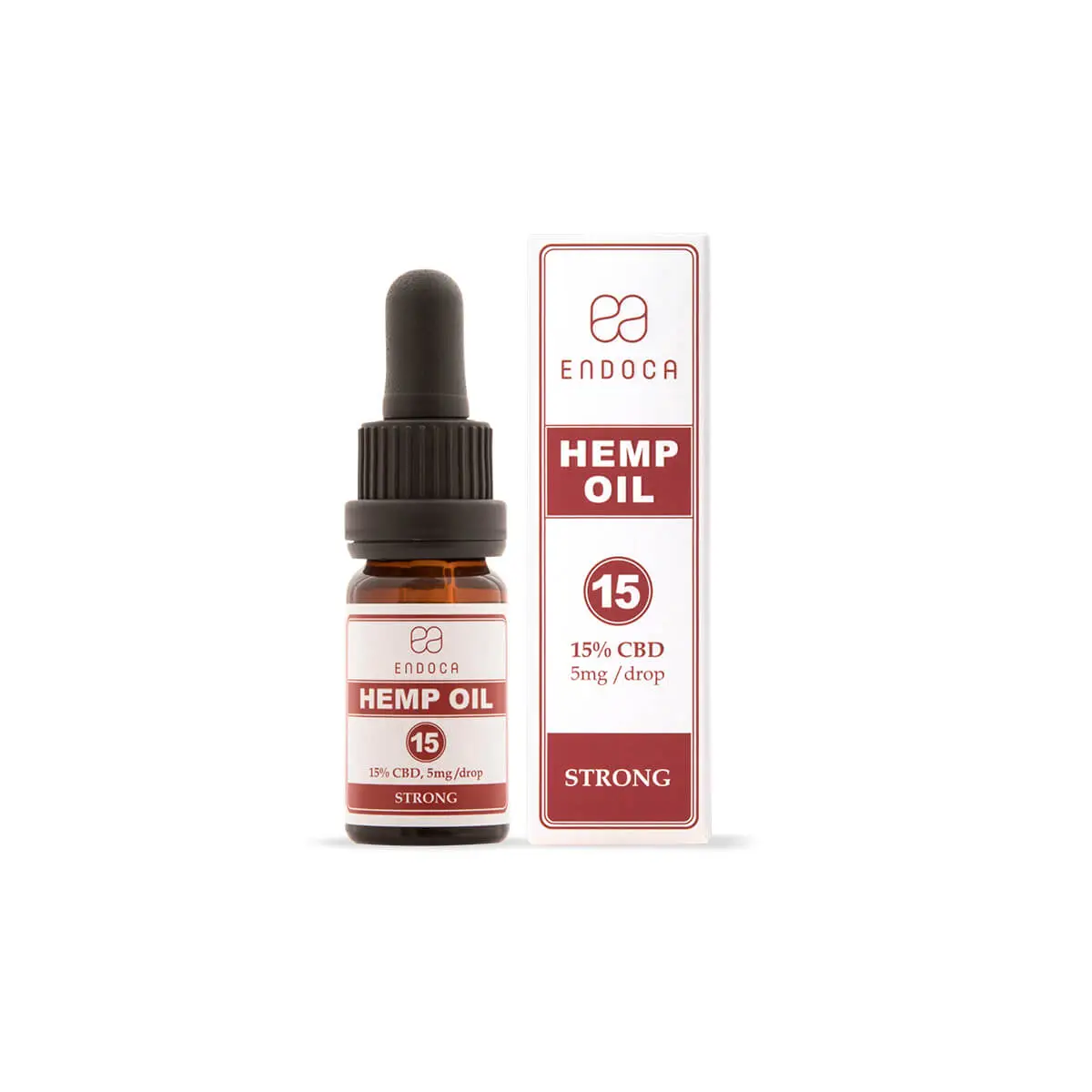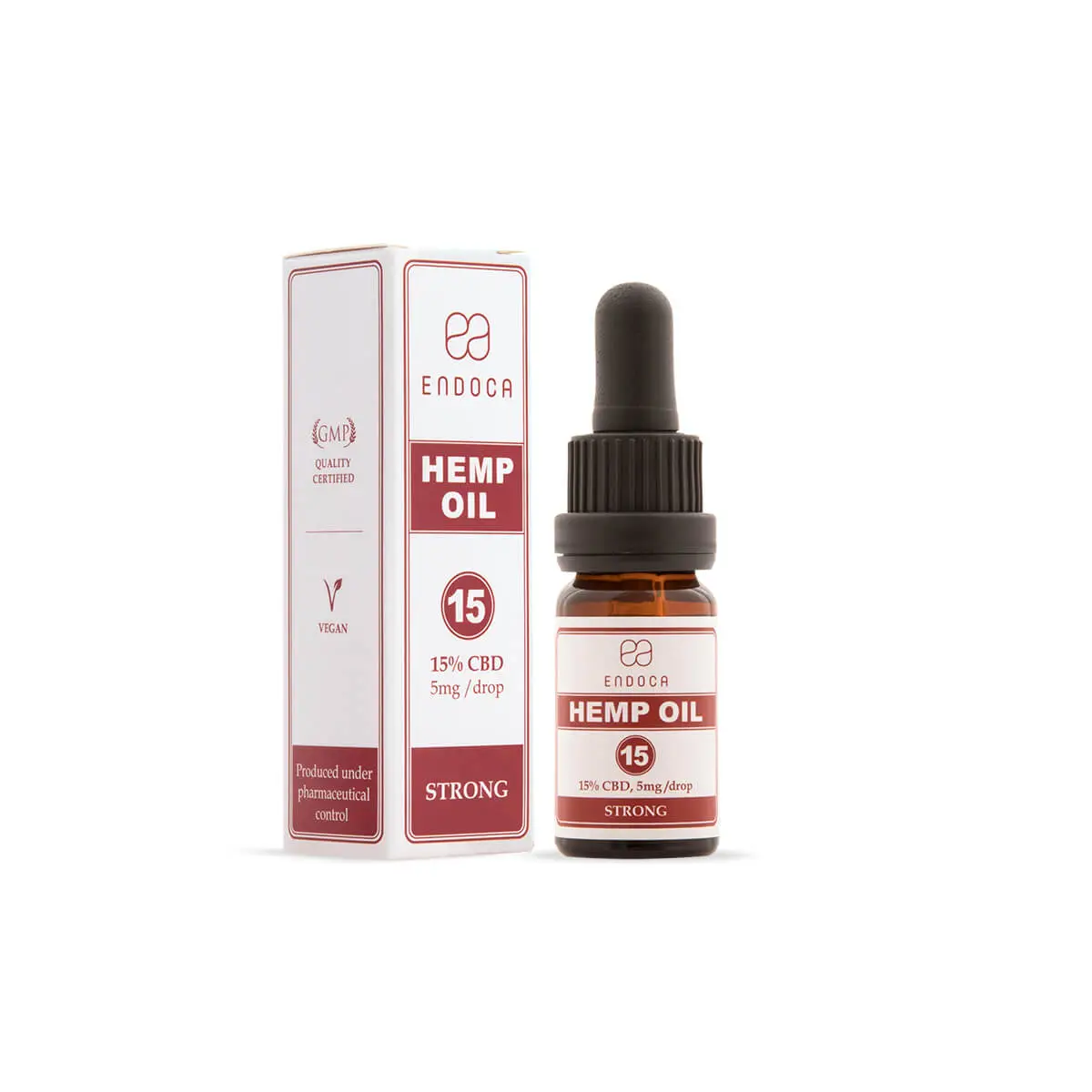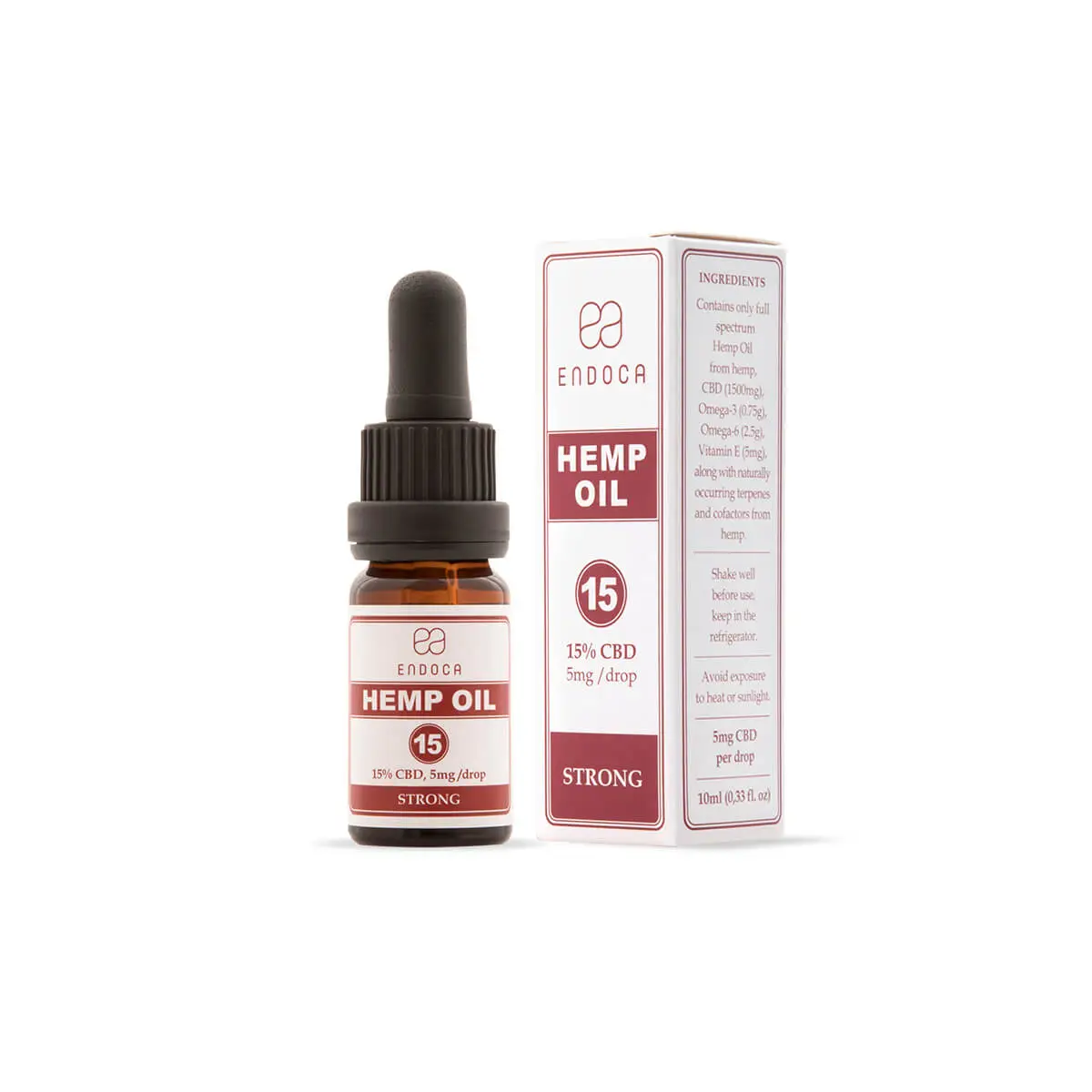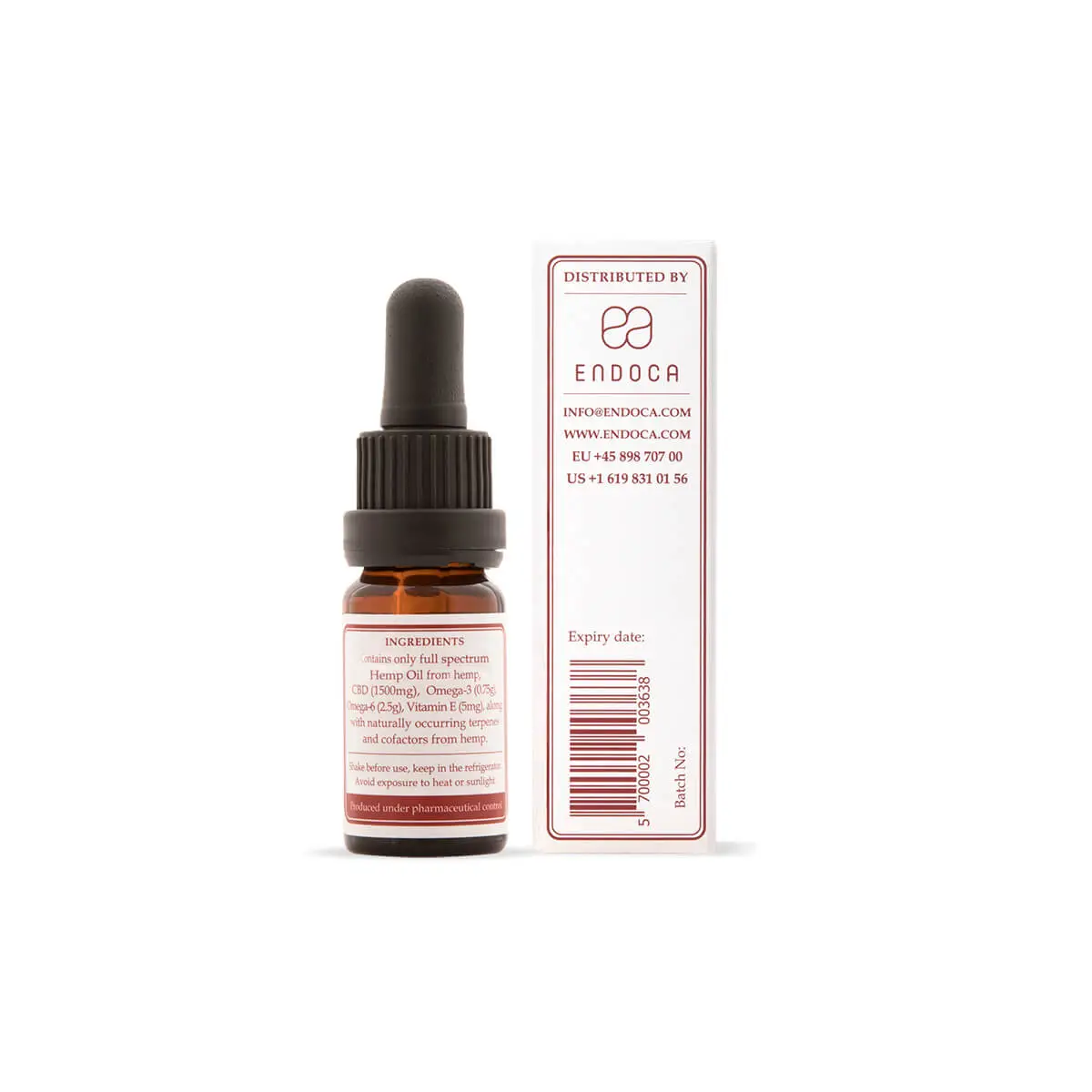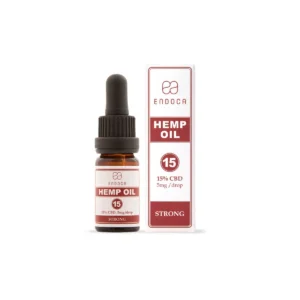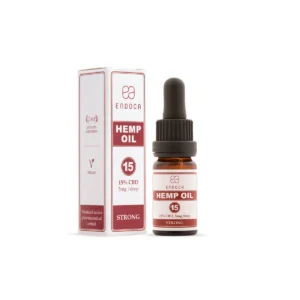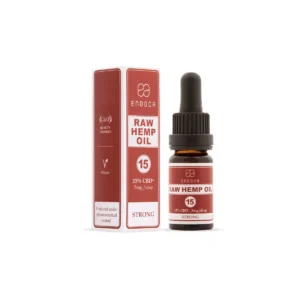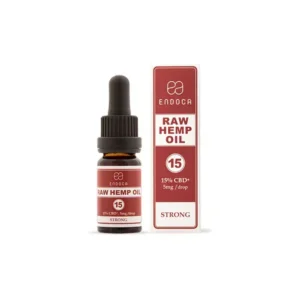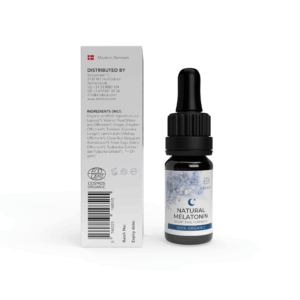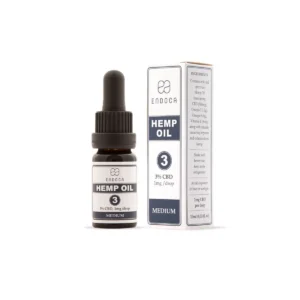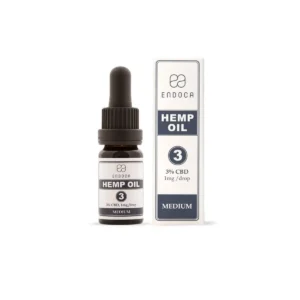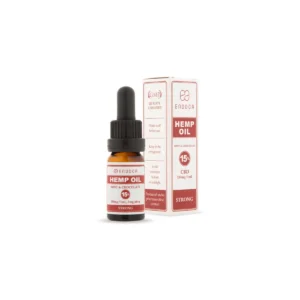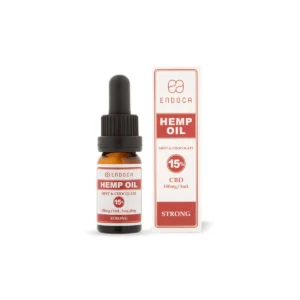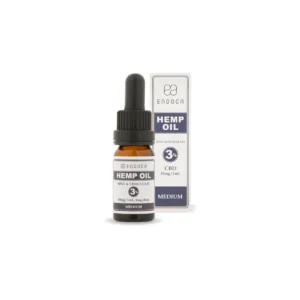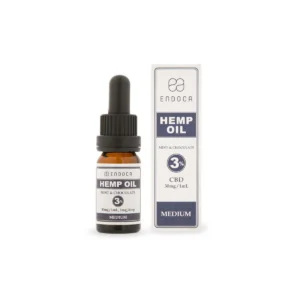- Shop
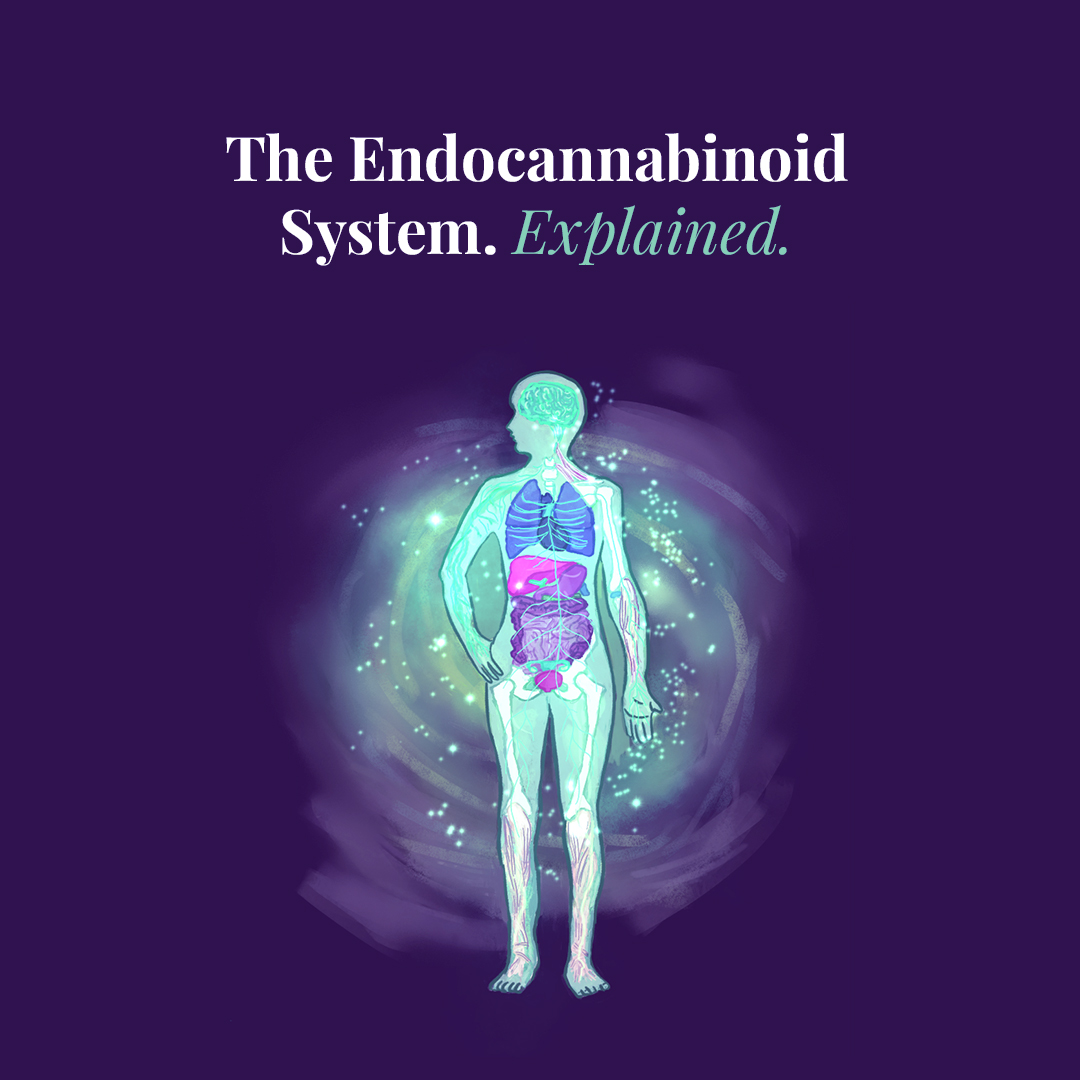
How CBD Works
Learn about the endocannabinoid system
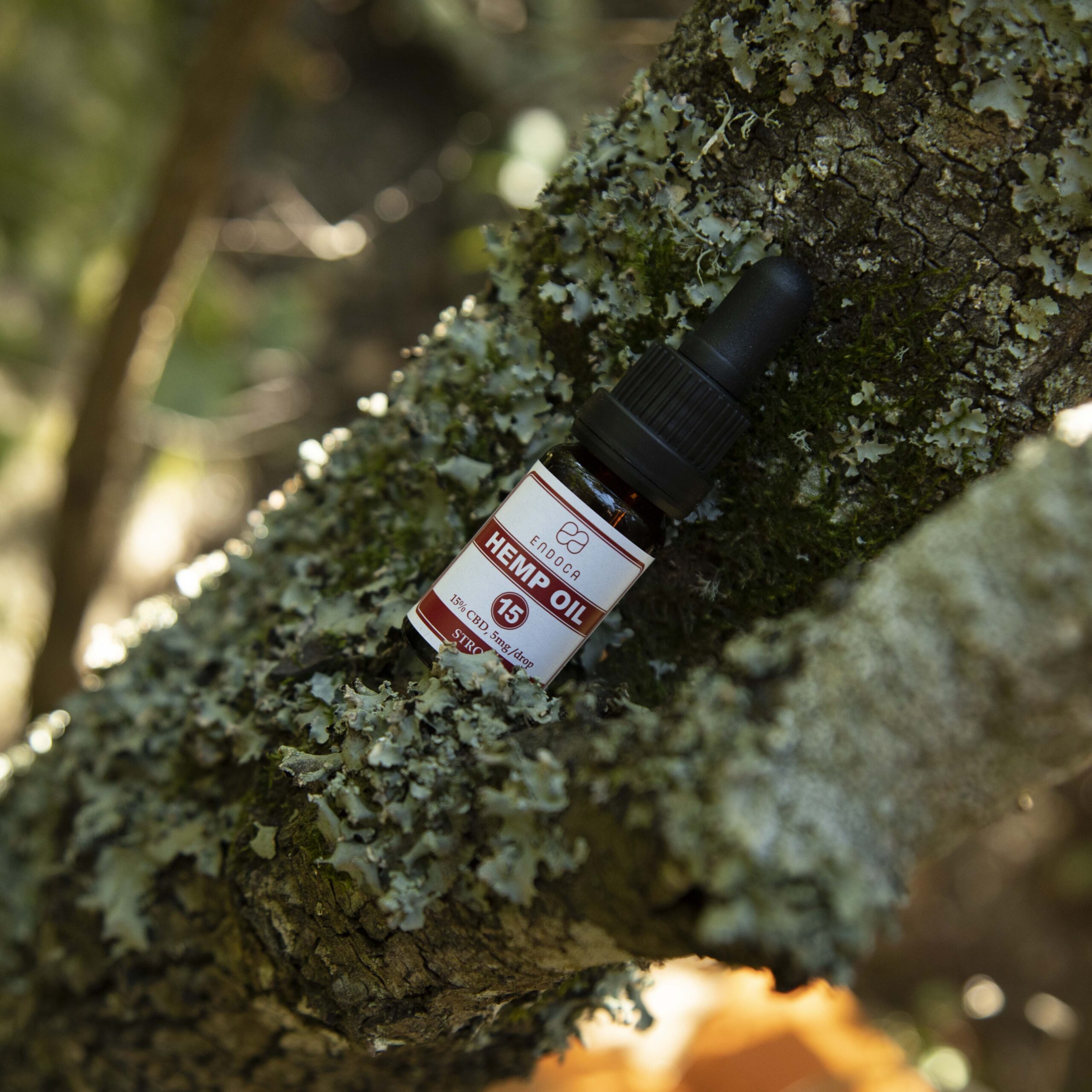
CBD Oil
Our iconic and organic CBD oils, with under 0,2% THC
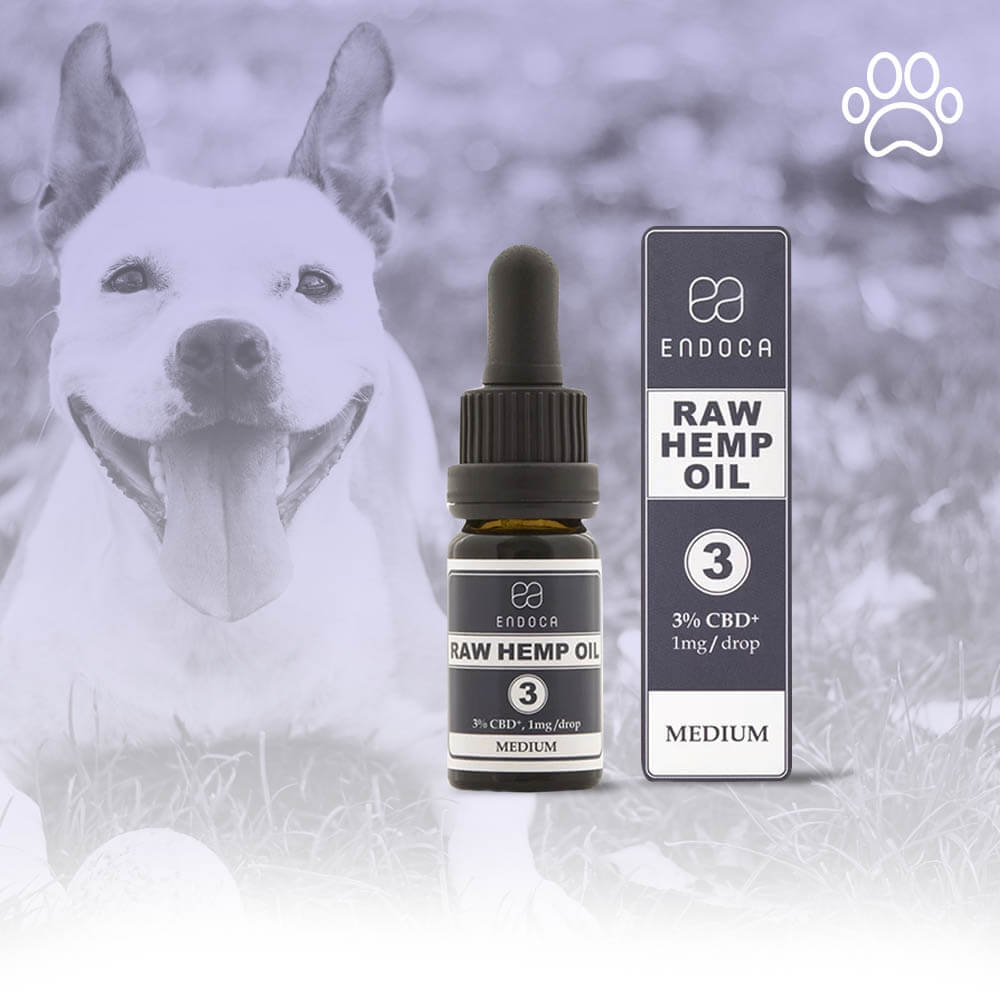
CBD For Pets
Treat your furry friends to Endoca’s CBD for pets
- About CBD
About Endoca
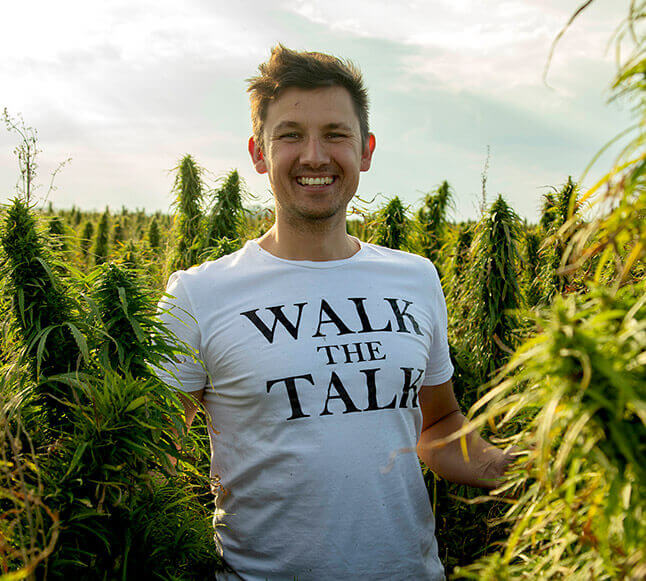
Our Story
From humble beginnings to a global mission – we grow, harvest, and craft hemp with care for people and planet.
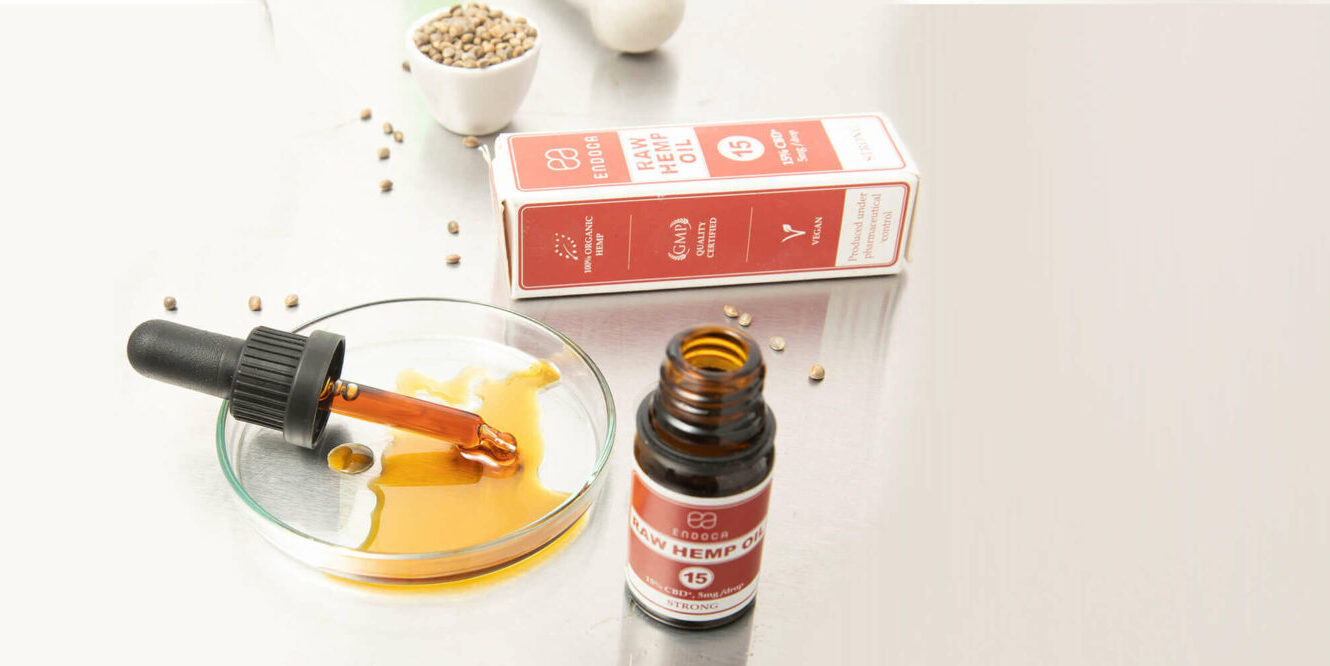
What Is CBD?
CBD is nature’s way to restore balance, calm, and overall well-being – naturally and without the high.

The Process
From seed to shelf, we grow organically, extract cleanly, and follow strict quality standards for purity.
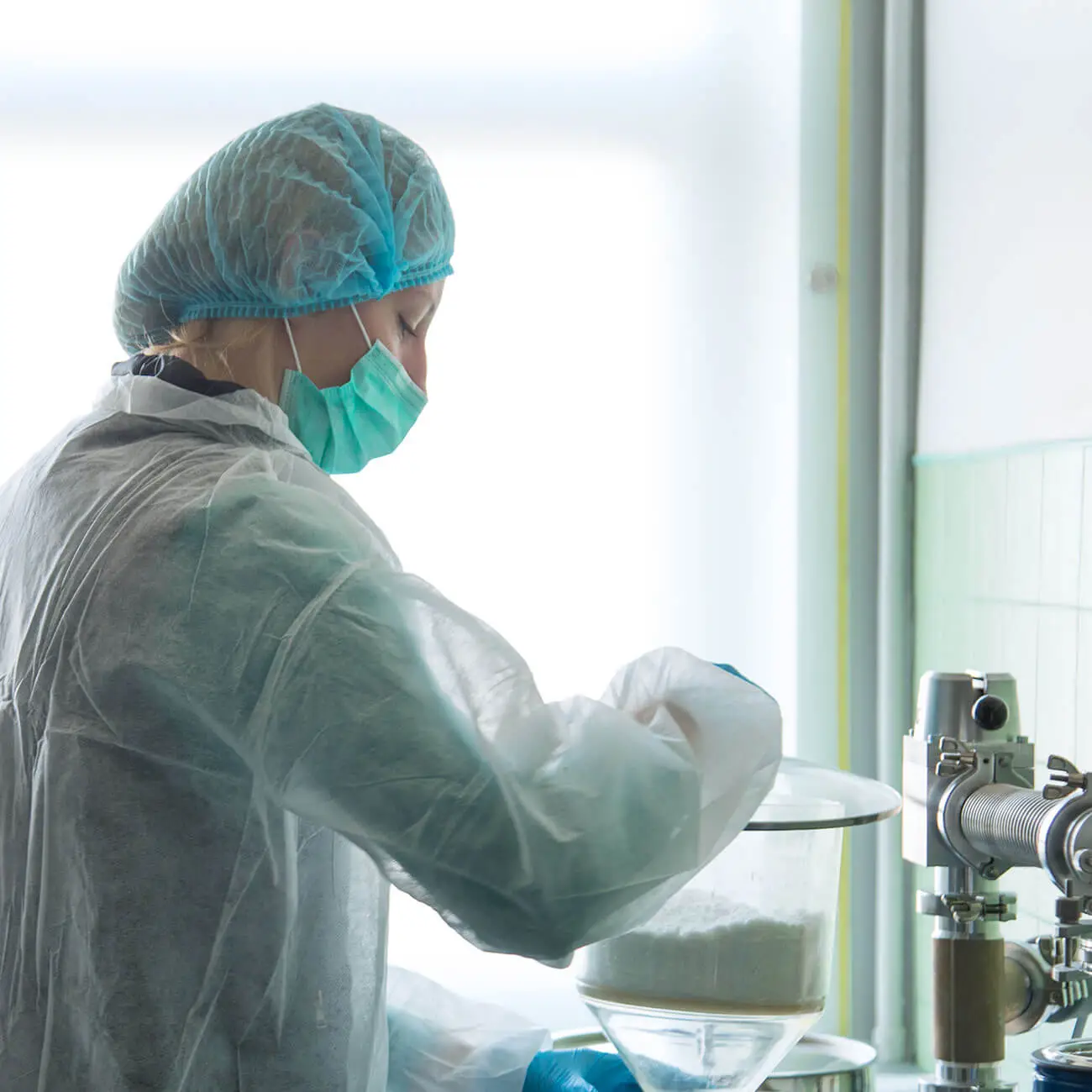
Lab Testing
Every batch is third-party tested to ensure purity, safety, and the exact amount of CBD every time.
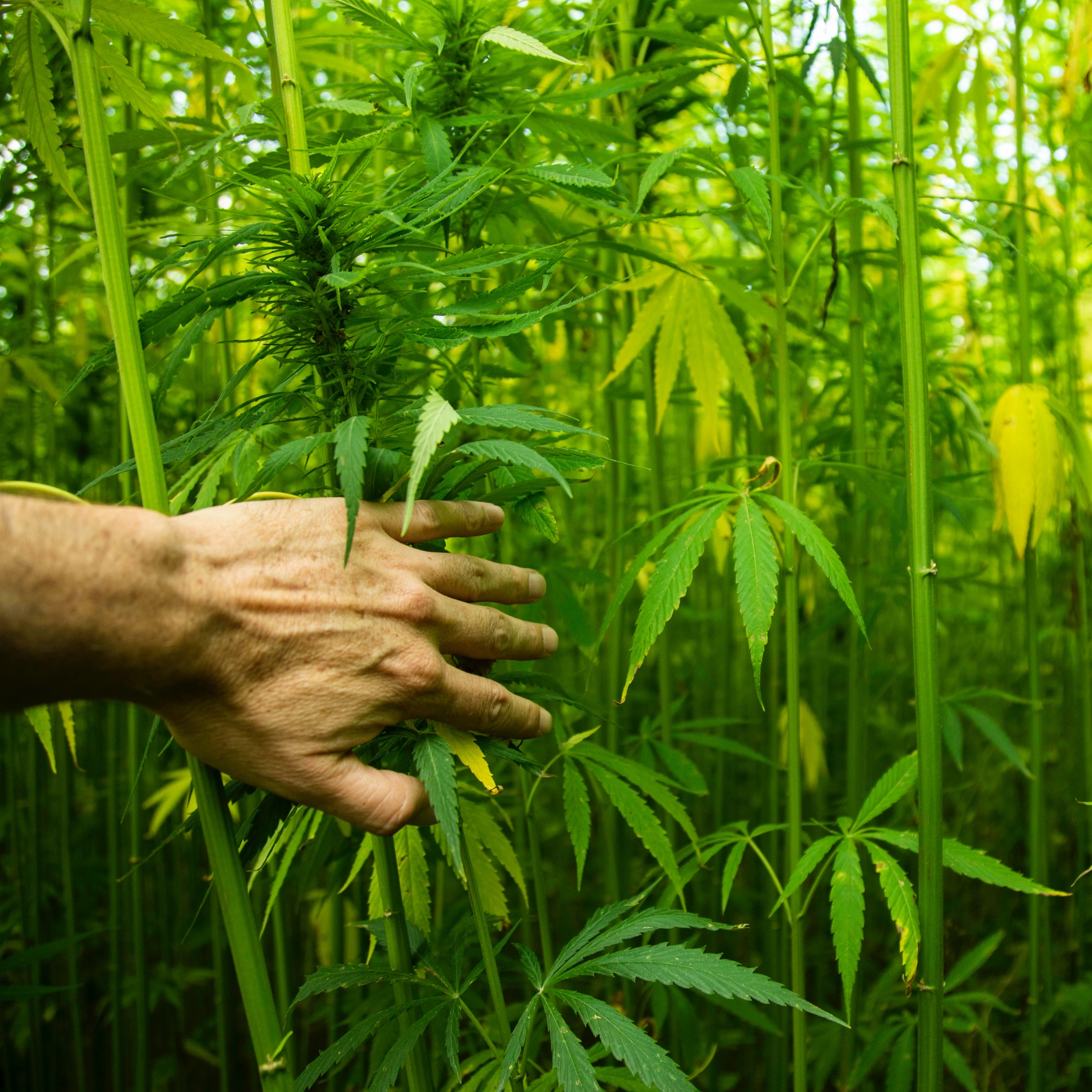
Our Values
Sustainability, transparency, and wellness guide every decision – for you and for the planet.
- Foundation
- Contact us
- Sale
CBD oil 150mg/ml (strong)
✔Use just 1–3 drops daily — lasts up to 60 days.
✔Crafted to help your body slow down before bedtime.
✔Perfect for winding down afterlong days and easinginto deeper sleep – Naturally.
115 € – 299 €Price range: 115 € through 299 €
In stock
Free Returns
Free shipping on orders over €100
Happiness Guarantee
Organic Hemp
Frequently bought together
CBD oil 15%, 150mg CBD+/ML (Strong)
Complement your lifestyle and well-being with our full-spectrum CBD drops. Perfect for beginners in the CBD world, these drops can stimulate your endocannabinoid system and help promote balance and daily well-being. Our CBD drops are based on a special, innovative extraction process without chemicals, ensuring the best method to preserve the product’s beneficial properties. Our organic CBD drops retain hemp’s natural, complex structure of over 400 molecules, providing you with a product you can trust.
- You can supplement your diet with CBD oil by taking the drops once or twice daily.
- We recommend a dose of 1-3 drops per day.
- To use the dropper, gently press the rubber tip and then release it to fill the dropper.
- Store the bottle in a cool, dry place.
CBD oils and tinctures are among the most classic ways to consume CBD. Historically, some of the earliest records of using hemp as medicine were in tincture form. Even the use of glass bottles with glass droppers resembles traditional methods and remains common today. CBD oil is often used for its balancing properties and its ability to promote general well-being.
At Endoca, you’ll always find a wide range of CBD products to help you with various challenges you may encounter in life. With us, you’ll find CBD products in the form of drops, CBD cream, capsules, CBD gummies, organic protein powder, extracts, and many other varieties, allowing you to experience the benefits of adding CBD to your daily routine. You can read more about the benefits of various CBD products here.
100% Natural Ingredients
Hemp seed oil (50%), omega-3 (0.75 g), omega-6 (2.5 g), vitamin E (5 mg), phytocannabinoids, and cannabidiolic acid 15% (CBDa + CBD 1500 mg), low concentration of natural forms of (CBC, CBG, CBN)
Terpenes
Myrcene, limonene, alpha & beta-pinene, linalool, B-caryophyllene, caryophyllene oxide, terpinolene, and humulene.
Other Natural Molecules
Cannabis plant wax, flavonoids (quercetin, apigenin, and cannaflavin), alkanes, nitrogen compounds, amino acids, ketones, glycosides, vitamins, pigments, water, cofactors, and co-nutrients.
SUPPORT A HEALTHY AND NATURAL BALANCE
CBD, one of the primary plant cannabinoids, plays a vital role in supporting the body’s ability to maintain balance. By interacting with the endocannabinoid system—a complex network of chemical signals and receptors in the brain, central nervous system, and immune system— CBD helps regulate a range of essential functions.
This system influences everything from immune function and appetite to mood and overall well-being. By incorporating CBD oil into your daily routine, you can support the body’s natural processes.

Frequently Asked Questions
5% CBD Oil Drops are made from the whole hemp plant, containing both CBD and CBDa, which are extracted using CO2 without the use of chemicals. This raw hemp material is then filtered and gently heated, converting CBDa into CBD.
Through this gentle heating process, we obtain 15% CBD Oil Drops with no CBDa remaining. Although the two molecules may look almost identical, they are actually quite different.
When heat is applied, the other 400 molecules also undergo a change in structure. This change isn’t necessarily positive or negative, but we know that the molecular structure is altered when heat is used.
You can read more about the differences between CBD oil drops and RAW CBD oil drops here.
5% CBD Oil Drops are made from the whole hemp plant, containing both CBD and CBDa, which are extracted using CO2 without the use of chemicals. This raw hemp material is then filtered and gently heated, converting CBDa into CBD.
Through this gentle heating process, we obtain 15% CBD Oil Drops with no CBDa remaining. Although the two molecules may look almost identical, they are actually quite different.
When heat is applied, the other 400 molecules also undergo a change in structure. This change isn’t necessarily positive or negative, but we know that the molecular structure is altered when heat is used.
You can read more about the differences between CBD oil drops and RAW CBD oil drops here.
This really depends on which substance you’re talking about. Our 15% CBD hemp oil drops contain five times more CBD than the 3% drops and therefore have a higher content of cannabinoids. However, they contain lower amounts of other vitamins, minerals, and co-nutrients.
Higher strength CBD is not necessarily the best option. Studies of wild and cultivated hemp seed varieties, which have been used by humans for thousands of years, show that the average CBD content has always been around 1-4%. It is only in recent times that higher-strength varieties have been developed.
The main difference is the concentration of Cannabidiol (CBD). When you buy our 15% CBD hemp oil drops, you get more CBD – the primary active ingredient – but you also receive smaller amounts of the other 400 molecules. So, in this case, less can be more.
15% CBD hemp oil drops contain 0.75 g of Omega 3 and 2.5 g of Omega 6 – the perfect balance between these two essential fatty acids, just as they are found in nature. Omega 3 is now recognized as a vital nutrient in our diet, improving brain function, regulating cholesterol, relieving joint pain, and even balancing the body’s endocannabinoid system.
Each bottle contains 5 mg of vitamin E, which, along with Cannabidiol (CBD), is one of nature’s most powerful antioxidants.
15% CBD drops contain CBD mixed with hemp seed oil, while 15% CBD capsules contain only the concentrated whole plant extract. See our selection of capsules here.
The cannabinoid Cannabidiol (CBD) is officially recognized by the European Union as an antioxidant, anti-seborrheic agent, skin conditioner, and skin protector. Additionally, the hemp plant has been used by humans for thousands of years to care for their skin. See our selection of skincare products here.
You may know us from
Why Choose ENDOCA?
OTHER
BRANDS
From our own hemp fields to bottle
Made in our own labs for full control
Clean CO₂ extraction
Natural blend of hemp & hemp seed oil
Rich in natural plant compounds
Always pure, safe & natural

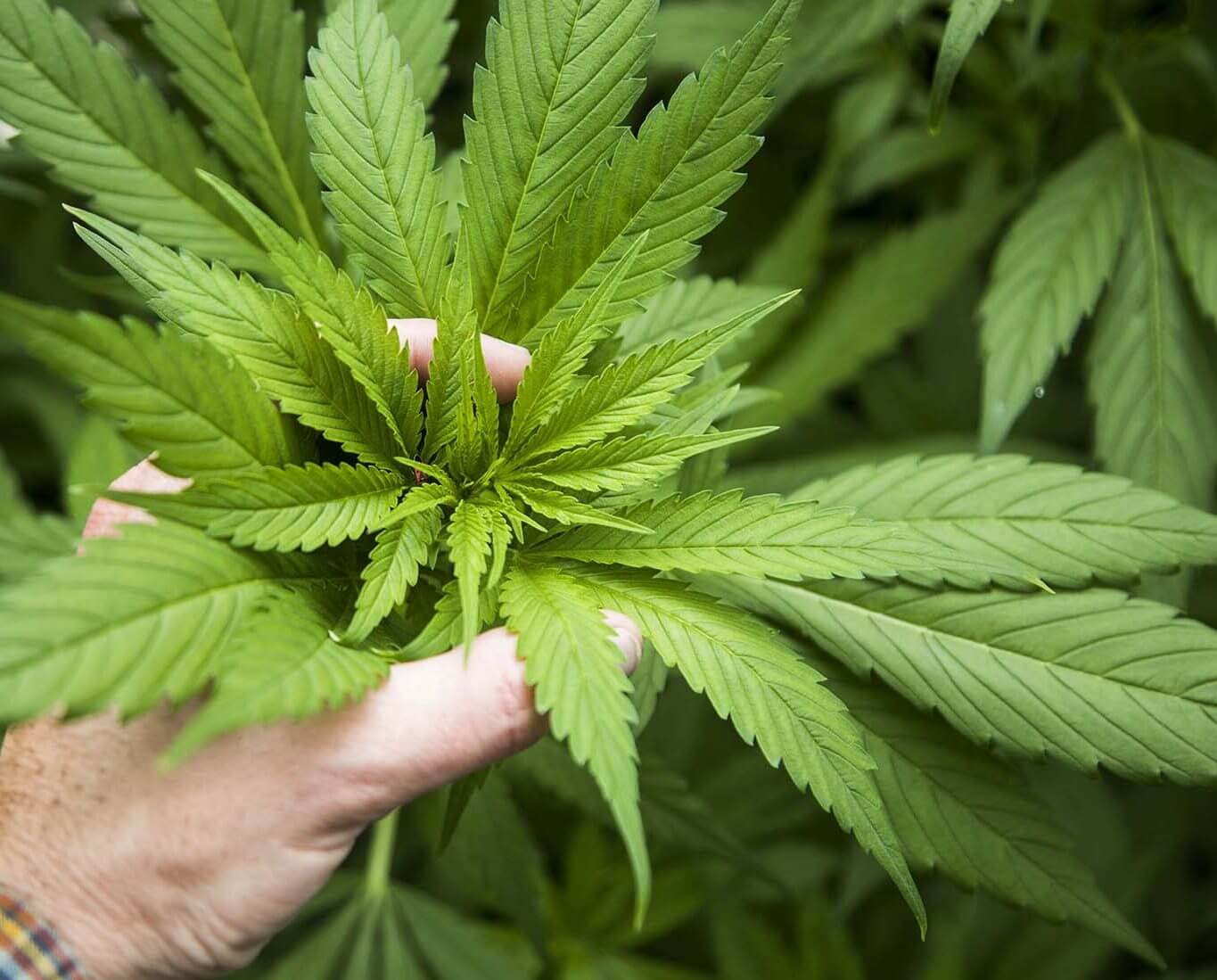
FAQ
CBD Questions? We got you
What is CBD?
CBD stands for cannabidiol, which is one of over 100 natural compounds called cannabinoids found in the cannabis plant, Cannabis sativa. This plant is known for its versatile uses and various chemical compounds
Cannabinoids:
Cannabinoids are a group of substances naturally occurring in the cannabis plant. These compounds interact with the body’s own system, known as the endocannabinoid system, which is important for various biological processes.
Cannabis sativa:
Cannabis sativa is a plant species used for a variety of purposes. Its chemical properties vary depending on the type or strain being cultivated.
CBD and THC:
CBD is different from THC (tetrahydrocannabinol), another well-known compound in cannabis. THC is recognized for its psychoactive properties, whereas CBD does not have this effect.
How do I use CBD?
There are many different ways to use CBD oil depending on your needs and preferences.
Some of the most common methods include:
- Taking CBD drops sublingually/under the tongue
- Inhaling CBD via vaping
- Applying CBD to the skin with CBD cream
- Using CBD suppositories vaginally or anally
Which method should you choose?
The choice of method depends on your preferences and intended purpose. Some prefer sublingual consumption for fast absorption, while others choose topical application for localized effects. Each method has its own advantages.
How you use Endoca’s CBD oil depends on the method you choose. For more information, you can read about the effects of CBD oil here.
What is CBDa?
CBDa, or cannabidiolic acid, is the acidic precursor to CBD (cannabidiol). This means that fresh hemp plants primarily contain CBDa and only small amounts of CBD. It is only through drying and heating the plant that CBDa converts into CBD through a process called decarboxylation.
CBDa vs. CBD:
CBDa is the natural form found in fresh hemp plants before they are exposed to heat or other processing methods.
When the plant is heated (for example, during extraction or cooking), CBDa loses its acid group and transforms into CBD.
Natural presence:
In raw hemp plants, CBDa is dominant. CBD is only found in small amounts without treatment.
By preserving CBDa in products, the natural chemical profile of the hemp is retained.
Products containing both CBD and CBDa:
If you are looking for a product that contains both CBD and CBDa, RAW (full-spectrum) CBD drops offer a natural combination of both compounds. These oils retain the plant’s original properties since they are not heated.
This provides an opportunity to choose a natural and balanced approach to hemp’s active compounds.
What makes Endoca CBD high quality?
Endoca offers a diverse range of CBD oil products, including both raw and decarboxylated options, to suit individual preferences and wellness needs. Our raw CBD oil contains both CBDa (cannabidiolic acid) and CBD, preserving more of the plant’s natural compounds in their original form, while our decarboxylated oil provides a more refined formulation rich in active CBD.
All of our premium CBD extracts are crafted under rigorous pharmaceutical-grade quality control standards to ensure purity, consistency, and safety. We use organically grown hemp cultivated through permaculture farming methods, which promote soil health, biodiversity, and sustainability without the use of harmful chemicals or pesticides.
To preserve the full spectrum of beneficial compounds in the hemp plant—including cannabinoids, terpenes, flavonoids, and nutrients—we utilize state-of-the-art supercritical CO₂ extraction. This clean-air technology ensures a gentle, solvent-free process that maintains the integrity and potency of the natural compounds, resulting in a clean, effective, and environmentally friendly CBD oil.
Whether you’re seeking the benefits of whole-plant synergy or a more targeted cannabinoid profile, Endoca provides high-quality options rooted in nature and backed by science.
What is in Endoca CBD oil?
First and foremost, you can view all our quality reports here
Endoca CBD oil contains the following natural compounds:
CBD (cannabidiol)
Chlorophyll
Alkanes
Nitrogenous compounds
Amino acids
Sugars
Aldehydes
Alcohols
Ketones
Flavonoids
Glycosides
Vitamins
Pigments
Over 400 molecules in hemp:
The cannabis/hemp plant contains over 400 different molecules. Research shows that a particular group of these molecules, called cannabinoids, plays a central role in the plant’s properties and uses.
Cannabinoids in hemp:
The hemp plant produces more than 120 known cannabinoids, including:
CBD (cannabidiol): The most well-known and widely used cannabinoid.
CBG (cannabigerol): Known as the “mother cannabinoid” because it is the precursor to other cannabinoids.
CBC (cannabichromene): Known for its synergistic properties with other cannabinoids.
CBN (cannabinol): A cannabinoid that forms when THC degrades.
Endoca CBD oil is created to preserve as many of these natural compounds as possible, making it a product rich in the plant’s natural elements.
What is the endocannabinoid system?
The endocannabinoid system is a homeostatic regulator that monitors brain activity and nearly all other physiological systems in the body. The system regulates pain, inflammation, memory, emotions, sleep, and metabolism.
It consists of a network of receptors in the brain and the central and peripheral nervous systems, along with cannabis-like compounds called endocannabinoids.
The system is often compared to a dimmer switch, constantly maintaining balance in the body when there is too much or too little activity.
Plant cannabinoids like CBD or THC interact with the endocannabinoid system, which researchers believe may explain the physiological effects reported from the use of the cannabis plant.
Researchers also suggest that when the system does not function properly, diseases can occur. This is called endocannabinoid deficiency and may be the root cause of conditions such as migraines, fibromyalgia, irritable bowel syndrome (IBS), and multiple sclerosis.
New studies have shown that active compounds from other plant species, such as carrots (Daucus carota), kava (Piper methysticum), New Zealand liverwort (Radula marginata), ginger (Zingiber officinale), and black pepper (Piper nigrum), contain compounds that interact with the endocannabinoid system.
What is a synthesis?
A synthase is an enzyme that catalyzes the synthesis of a molecule by combining two or more smaller molecules.
Synthases are responsible for building complex compounds in the body by catalyzing chemical reactions in which small units (such as amino acids, nucleotides, or sugars) are joined together to form larger, more complex molecules.
Synthase enzymes differ from synthetase enzymes in that synthetases require energy in the form of ATP to catalyze the reaction, whereas synthases typically do not require energy (ATP).
An example of a synthase is ATP synthase, which assists in synthesizing ATP during cellular energy production.
What is THC?
Tetrahydrocannabinol (THC) is one of the most prevalent and well-known cannabinoids naturally occurring in the cannabis plant. It is primarily recognized for its psychoactive effects, meaning it can alter perception, mood, and cognitive function—effects commonly associated with the sensation of being “high.” For this reason, cannabis strains bred for recreational use typically contain elevated levels of THC.
Despite its association with recreational cannabis, THC also possesses clinically relevant therapeutic properties. Research has demonstrated that THC can be effective in reducing chemotherapy-induced nausea and vomiting, making it a valuable treatment option for cancer patients undergoing such therapies. In addition, THC has shown potential in alleviating intraocular pressure in patients with glaucoma, which may help slow the progression of the disease.
Another notable benefit of THC is its ability to reduce certain types of chronic pain, particularly neuropathic pain, which is often difficult to manage with conventional medications. This makes THC of interest in the treatment of conditions such as multiple sclerosis, fibromyalgia, and nerve damage.
However, due to its psychoactive nature, the medical use of THC must be carefully managed and tailored to individual patient needs. Balancing its therapeutic benefits with possible side effects—such as altered cognition, drowsiness, or anxiety—is essential for safe and effective use in clinical settings.
What is THCa?
Tetrahydrocannabinolic acid (THCa) is the non-psychoactive, acidic precursor to THC, the well-known psychoactive compound found in cannabis. In its natural, raw form, cannabis—especially when freshly harvested—contains predominantly THCa, with very little active THC present.
The transformation of THCa into THC occurs through a process called decarboxylation, which typically involves the application of heat. This can happen during drying, baking, smoking, vaping, or cooking. When THCa is exposed to sufficient heat, a carboxyl group is removed from its molecular structure, converting it into THC, which can then interact more effectively with the body’s endocannabinoid receptors to produce psychoactive effects.
Because THCa itself does not produce a “high”, raw cannabis products—such as unheated extracts or fresh juice—are often marketed for those seeking potential anti-inflammatory or neuroprotective benefits without the intoxicating effects associated with THC.
Understanding the distinction between THCa and THC is important for both medical and recreational cannabis users, as the method of preparation significantly affects the chemical profile and physiological impact of the final product.
What is cannabidiolic acid?
Cannabidiolic acid (CBDa) is the natural, non-psychoactive precursor to cannabidiol (CBD), one of the most well-known cannabinoids derived from the hemp plant.
Found abundantly in raw and unprocessed hemp, CBDa is formed in the plant’s trichomes and represents a significant portion of its cannabinoid profile before any heat or processing is applied.
Chemically, CBDa differs from CBD by the presence of a carboxyl group (-COOH). When the plant material is heated during drying, extraction, cooking, or smoking, CBDa undergoes decarboxylation, a process in which it loses this carboxyl group in the form of carbon dioxide (CO₂), thereby converting into CBD—the form most commonly associated with wellness and therapeutic use.
While CBD has been widely studied, CBDa is emerging as a compound of interest in its own right. Early research indicates that CBDa may possess a range of potential therapeutic properties, including:
Anti-inflammatory effects, possibly making it helpful for conditions such as arthritis or inflammatory disorders.
Antioxidant capabilities, which may help protect cells from oxidative stress.
Anti-nausea action, with some studies suggesting effectiveness in reducing nausea and vomiting, particularly in chemotherapy patients.
Anxiolytic (anti-anxiety) potential, although more research is needed to confirm these effects in clinical settings.
CBDa is commonly found in raw CBD products, such as unheated CBD oils, tinctures, or fresh hemp juice, and is often sought after by those looking for the entourage effect in its most natural form.
Since it has not undergone decarboxylation, CBDa is often described as the “raw” or “inactive” form of CBD, though this does not mean it is biologically inactive—only that its interaction with the body differs from that of CBD.
As scientific interest grows, CBDa is gaining recognition as a valuable compound in its own right, and future studies are expected to shed more light on its unique mechanisms and health potential.
What is hemp oil?
Hemp oil is often used as another term for CBD oil, as both refer to extracts derived from the cannabis sativa plant, particularly from its flowers, leaves, and stalks.
These extracts typically contain cannabidiol (CBD) and other beneficial cannabinoids, terpenes, and plant nutrients, and are widely used for wellness and therapeutic purposes.
However, it’s crucial to understand the important distinction between hemp oil (CBD oil) and hemp seed oil, as the two are frequently confused—especially in product labeling and marketing.
Hemp seed oil is made by cold-pressing the seeds of the hemp plant, which do not contain cannabinoids like CBD or THC. While hemp seed oil is rich in healthy fats, such as omega-3 and omega-6 fatty acids, and offers nutritional benefits as a cooking oil or dietary supplement, it does not provide the therapeutic effects associated with CBD.
In contrast, CBD oil (hemp extract) is derived from the aerial parts of the hemp plant, including the flowers and leaves, where cannabinoids are naturally concentrated. This oil is commonly used in tinctures, capsules, creams, and other wellness products for its potential to support relaxation, sleep, pain relief, and more.
Understanding the difference between hemp seed oil and CBD oil is essential when choosing a product, especially since both are sometimes marketed simply as “hemp oil.” Consumers should always check the product’s label and ingredient list to confirm whether it contains CBD-rich extract or just nutritional seed oil—as the effects and uses are significantly different.
What is medicinal cannabis / marijuana?
Medical cannabis, also referred to as medical marijuana, describes the use of cannabis for treating diseases or managing symptoms. While widely discussed and increasingly accepted, there is no universally agreed-upon definition of what constitutes medical cannabis.
Traditionally, the term has referred to cannabis plants with high levels of THC (tetrahydrocannabinol)—the psychoactive compound known for its mind-altering effects.
However, as scientific understanding of cannabis has grown, researchers have identified over 100 additional cannabinoids, such as CBD (cannabidiol) and CBG (cannabigerol), that also appear to offer therapeutic potential. This broader cannabinoid spectrum has made it increasingly complex to define exactly what qualifies as “medical” cannabis.
If you’re curious about the specific differences between THC and CBD, and how they affect the body, you can read our detailed article:CBD vs THC
In the United States, the term medical marijuana is widely used by licensed dispensaries that legally sell cannabis under state-level regulations. These dispensaries often market their products as intended for medical use, although in practice, most cannabis sold through these channels is consumed for general, everyday use, not under physician supervision.
It is also important to note that only a small fraction of medical cannabis products on the market have undergone rigorous clinical testing or received official regulatory approval.
The studies that have been conducted often involve small sample sizes and yield inconclusive or preliminary results, making it difficult to draw firm conclusions about the safety and efficacy of most products currently available.
As research advances and regulations continue to evolve, the definition and standards of medical cannabis may become clearer, paving the way for more consistent quality and better-informed usage.
Does cannabis and hemp have other names?
Yes, cannabis—including both hemp and marijuana varieties—has accumulated a wide range of slang terms over the years.
These informal names vary by region, culture, and context, and are often used in casual or recreational settings. Some of the most common slang terms include marijuana, pot, weed, grass, ganja, dope, herb, reefer, skunk, and many others.
While these terms are widely recognized, it’s important to note that they don’t always distinguish between hemp (low-THC, often used for CBD products) and marijuana (high-THC, typically used for recreational or medical purposes).
As cannabis becomes more accepted in medical and legal frameworks, the use of more precise terms like cannabis, CBD, and THC is increasingly encouraged for clarity and professionalism.
Does Endocas products contain THC?
We have made it our mission to carefully select and cultivate cannabis and hemp strains that offer the highest concentrations of CBD and a rich profile of other beneficial cannabinoids, such as CBG, CBC, and CBDa.
At the same time, we ensure that these strains contain no detectable levels of THC, aligning with legal requirements and offering peace of mind to those who seek the therapeutic benefits of cannabis without psychoactive effects.
Our selection process is guided by rigorous testing, organic cultivation practices, and a commitment to purity and safety. By focusing on cannabinoid-rich, THC-free varieties, we aim to deliver high-quality, broad-spectrum products suitable for daily use, wellness support, and specialized needs—without the risk of intoxication or legal complications.
How do I pay?
At Endoca, we make payment simple and secure. All transactions are processed online through our trusted payment provider, ensuring top-level security for your personal and financial information.
We accept both MasterCard and Visa.

When you’re ready to complete your purchase, you’ll be directed to our payment provider’s secure checkout page. Simply enter your card number, expiration date, and CVC (security code). Once your payment is processed, we’ll immediately begin preparing your order.

You can also choose to pay via online bank transfer. After placing your order, you’ll receive our bank account details by email so you can complete the payment manually.
Note: If your payment doesn’t go through, please contact your bank to ensure your card is approved for international purchases, then try again.
And don’t forget: always include your order ID number when making a bank transfer so we can match your payment to your order quickly.
If you paid by bank transfer?
Please note that funds usually appear in our bank account around four business days after the customer has completed the transfer.
Once we have confirmed receipt of payment, we will immediately begin processing and shipping your Endoca products.
When is my products delivered
At Endoca, we take pride in ensuring that your order reaches you as quickly as possible.
Under normal circumstances, you can expect to receive your Endoca products within 3 to 5 business days. However, delivery times may vary depending on your location, especially in countries with special import or shipping regulations. We kindly encourage you to review our shipping terms and conditions for country-specific details.
While we strive to fulfill every order promptly, please note that unexpected delays may occur due to factors beyond our control—such as customs processing, weather disruptions, or carrier-related issues.
Should any such delay arise, we are committed to keeping you fully informed and will notify you as soon as we receive any relevant updates.
